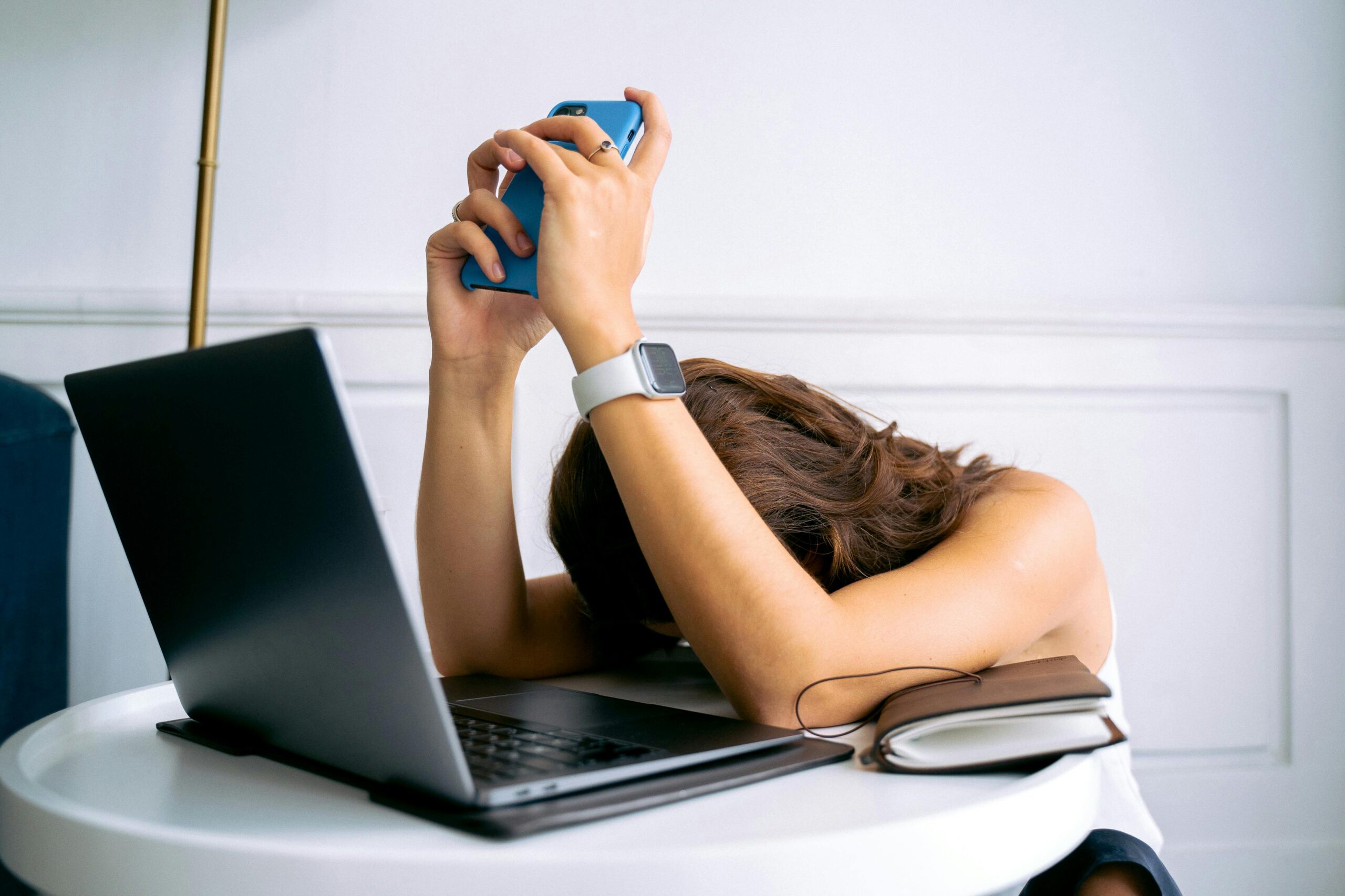
It’s a beautiful Sunday afternoon. You sit down with your laptop, ready to stream your favorite show or finish some work — but five minutes in, the fan sounds like a jet engine, the keyboard gets hot enough to toast bread, and everything slows down.
You ask the question most laptop owners eventually do: “Why is my laptop overheating?”
If that sounds familiar, you’re not alone. Overheating is one of the most common — and most ignored — issues that plague laptops. But don’t worry, in this post, we’ll dive into why laptops overheat, real-life stories from people like you, and how to fix it before your machine melts into a puddle of regret.
Real Story #1: The Gamer’s Burnout
Jason, a college student and avid gamer, noticed his laptop slowing down every time he fired up his favorite games. His once-speedy machine now lagged during gameplay and often shut down unexpectedly.
After a quick inspection, he realized he had been playing for hours on his bed — with the vents completely blocked by a blanket. The result? His laptop was cooking from the inside out.
Lesson learned: Soft surfaces block airflow and trap heat. Jason bought a cooling pad, cleaned the vents, and started playing on a hard, flat surface. His laptop stopped overheating, and his kill-to-death ratio improved too.
Common Reasons Why Your Laptop Is Overheating
There are several culprits behind an overheating laptop. Let’s break them down:
1. Poor Ventilation
Laptops need air to breathe. Blocked vents or using your laptop on cushions, beds, or even your lap can restrict airflow, leading to heat buildup.
2. Dust and Dirt Buildup
Over time, dust gets inside your laptop and clogs fans and vents. This prevents proper cooling and forces your fans to work harder, which leads to more heat — and noise.
3. Heavy Usage or High-Performance Apps
Running resource-heavy apps like video editors, 3D software, or AAA games can spike your CPU and GPU temperature, especially if the laptop isn’t designed for it.
4. Old Thermal Paste
Inside your laptop, a gooey substance called thermal paste helps transfer heat from your CPU to the heat sink. Over time, it dries out and becomes less effective.
5. Malware or Background Programs
Hidden programs or viruses can use up system resources, making your CPU work overtime. This heat overload can sneak up on you even when you think your laptop is idle.
Real Story #2: The Freelancer’s Frustration
Maya, a freelance writer, worked from coffee shops and often placed her laptop directly on the table — or her lap. She noticed it heating up during Zoom calls and while working in Google Docs. Not exactly heavy-duty tasks, right?
Also Read , How Do I Fix a Slow PC? Real Stories, Real Fixes
After a trip to the repair shop, the technician opened her laptop and found dust bunnies the size of actual bunnies. It turned out her fan had stopped spinning properly due to the dust buildup, causing the heat to stay trapped inside.
Solution: A simple internal cleaning solved her issue. Now Maya gets her laptop professionally cleaned every six months — and enjoys peaceful, heat-free typing again.
How to Check if Your Laptop Is Overheating
Before diving into solutions, let’s make sure your laptop is really overheating.
🔍 Signs of Laptop Overheating:
- Fan constantly running at full speed
- Laptop body, especially near the keyboard, feels very hot
- System performance slows down (lag or stuttering)
- Sudden shutdowns or restarts
- Visible warning messages from your operating system
🧪 Tools You Can Use:
- HWMonitor
- Core Temp
- Speccy
These free tools show internal temperature readings of your CPU and GPU. A good rule of thumb? If your laptop’s temperature crosses 90°C, it’s definitely overheating.
Real Story #3: The Designer’s Discovery
Leo, a graphic designer, recently upgraded his software and noticed his laptop getting hot to the touch just 20 minutes into working on a project. He assumed it was just the weather.
Spoiler alert: It wasn’t.
He later found that his auto-start programs were running in the background, including a crypto mining malware he unknowingly downloaded in a “free font bundle.” Once he removed the malware and adjusted his startup programs, his laptop’s temperature dropped dramatically.
Also Read , What are the best cheap gaming laptops in 2025?
Takeaway: Always scan for malware and manage your startup apps. What you don’t see can still cause heat.
So, Why Is My Laptop Overheating? Here’s What You Can Do:
Now that we’ve covered the why, let’s talk about the how — as in how to fix it.
✅ 1. Use It on a Hard, Flat Surface
Avoid beds, couches, or laps. Use a desk or invest in a laptop stand to promote airflow.
✅ 2. Clean Your Vents and Fans
Before you do any cleaning, always shut down your laptop completely and, if possible, unplug the charger and remove the battery to avoid electrical damage.
Use a can of compressed air to gently blow dust out of the air vents — short bursts are safer than continuous sprays. Hold the fan blades in place while cleaning to prevent them from spinning, which could cause internal damage.
If you’re feeling confident and want to go a step further by opening the back panel:
- Consult your laptop’s manual first to avoid voiding the warranty.
- Use a proper screwdriver and ground yourself to prevent static damage.
- Clean the internal fan and heatsink carefully using a soft brush or compressed air.
If in doubt, a professional cleaning service might be the safer bet.

✅ 3. Get a Cooling Pad
These USB-powered devices help circulate air under your laptop and are especially useful for gaming or long work sessions.
✅ 4. Update Software and Drivers
Keeping your operating system and drivers updated is more important than just getting the latest features. Outdated software can lead to inefficient resource use, bugs, or driver conflicts — all of which make your CPU or GPU work harder than necessary, creating more heat.
For example, an outdated graphics driver might mismanage rendering tasks, pushing your system to use more power (and generate more heat) than needed. Regular updates ensure your system is optimized for performance and thermal efficiency.
Also Read , How to Take a Screenshot on a Laptop? : A Simple Guide (With Real-Life Tales of Panic & Triumph)
To update:
- On Windows, go to Settings → Windows Update
- Check for driver updates via Device Manager or the manufacturer’s website
- Keep your BIOS/UEFI updated (with care) if recommended by your laptop’s brand
✅ 5. Limit Background Apps
Check Task Manager (Ctrl+Shift+Esc) and close unused apps. Disable unnecessary startup programs.
✅ 6. Replace Thermal Paste (Advanced Users)
If your laptop is over three years old, consider having a technician reapply thermal paste to help with heat transfer.
✅ 7. Scan for Malware
Use trusted tools like Malwarebytes or Windows Defender to rule out hidden processes causing heat spikes.
Real Story #4: The DIY Hero
Nina, a small business owner, decided to take matters into her own hands. After watching a few YouTube tutorials, she opened up her old laptop, cleaned it out, and replaced the thermal paste herself.
Result: Her laptop no longer overheats, and she proudly tells everyone she “built it herself,” which is… kind of true.
Final Thoughts: Stop the Sizzle Before the Fizzle
So, to answer the question “Why is my laptop overheating?”, the reasons can range from poor airflow and dust to malware or outdated software. The good news? Most of these issues are fixable — even without a trip to the repair shop.
Let’s recap:
- ✅ Keep your laptop clean and on flat surfaces
- ✅ Use a cooling pad for long sessions
- ✅ Monitor your temperature and background apps
- ✅ Don’t ignore early warning signs like lag and loud fans
Taking care of your laptop isn’t rocket science — it’s common sense, a little maintenance, and knowing when something’s off.
Got a laptop overheating story of your own? Share it in the comments — and let’s help each other keep our cool (literally)!
Also Read , The 8 Best Headphones of 2025 : Personal Stories, Expert Reviews & Must-Buy Picks
image credit: pexels.com


